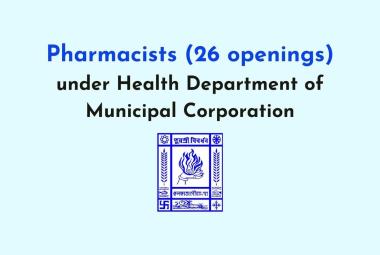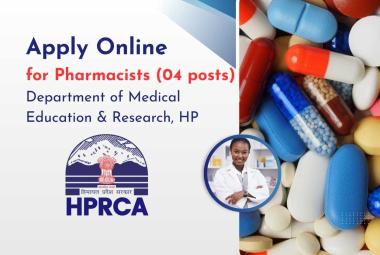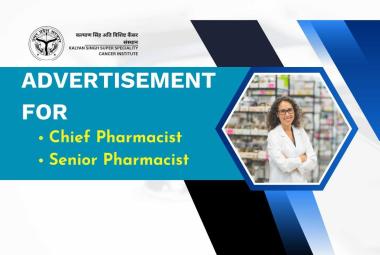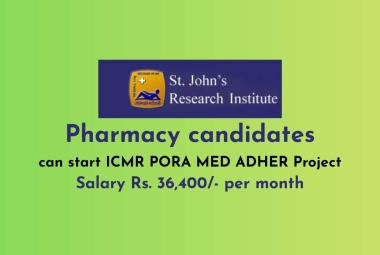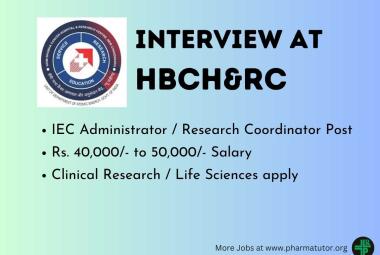{ DOWNLOAD AS PDF }
About Authors:
*Pradhyuman Singh Lakhawat, Poonam Vishwakarma
Research Scholar (Management) SHIATS,
Allahabad, Uttar Pradesh
pradhyuman.sngh@gmail.com
Abstract
Marketing is very important part of any organization for its existence in the market. The main strength of organization can measure on two basis first human resources and second on the basis of market share. While marketing is the major part then it should be follow the business ethical norms which are the guidelines for what is wrong and what is right in the business. But now a day’s mostly pharmaceutical in the pressure of more selling, more profit and for making the big share they are neglecting these codes. And whole pharmaceutical industry in the race of competition forgets one thing that is this marketing service is directly relate with the human life. Medicines are nectar but if it is in wrong form it can be poison for humans. So I am trying to give a small picture of current pharmaceutical marketing services and ethical codes.
Introduction
The term marketing concept holds that achieving organizational goals depends on knowing the needs and wants of target markets and delivering the desired satisfactions. It proposes that in order to satisfy its organizational objectives, an organization should anticipate the needs and wants of consumers and satisfy these more effectively than competitors. And when we refer this term to the pharmaceutical marketing then it is sometimes called medico-marketing, is the business of advertising or otherwise promoting the sale of pharmaceuticals or drugs. Pharmaceutical companies spending on marketing far exceeds that spent on research. In Canada, USD 1.7 billion was spent in 2004 to market drugs to physicians; in the United States, USD 21 billion was spent in 2002. In 2005 money spent on pharmaceutical marketing in the US was estimated at USD 29.9 billion with one estimate as high as USD 57 billion. When the US number is broken down 56% was free samples, 25% was detailing of physicians, 12.5% was direct to user advertising, 4% on hospital detailing, and 2% on journal advertisements.
The Indian pharmaceutical industry is responsible for around 10% of world pharmaceutical production. Over the last few years, a number of Indian pharmaceutical companies have been targeted for foreign acquisition. Concerns have been raised that this trend could adversely affect generic drug prices in India. The Ministry of Health wants safeguards built into the Foreign Direct Investment process amid fears that continued foreign acquisitions will adversely affect the domestic industry and push prices up, thereby potentially undermining the government’s efforts to make generic drugs affordable. This could lead to essential medicines becoming more expensive and adversely affecting public health programmes.The Indian pharmaceutical market is highly competitive and remains dominated by low-priced, domestically-produced generics. Despite having the second largest population in the world and a growing middle class with high healthcare expectations, India accounts for less than 2% of the world pharmaceutical market in value terms. In one of the world's better performing economies, spending on pharmaceuticals accounts for less than 1% of GDP and average per capita spending remains one of the lowest levels in the region.
Ethical codes and Pharmaceutical industry
Ethical marketing refers to the application of marketing ethics into the marketing process. Ethical marketing generally results in a more socially responsible and culturally sensitive business community. The establishment of marketing ethics has the potential to benefit society as a whole, both in the short- and long-term. Ethical marketing should be part of business ethics in the sense that marketing forms a significant part of any business model. Marketing strategy can be arranged into five categories, (1) Physicians-targeted promotions, (2) direct-to-consumer advertising, (3) unethical recruitment of physicians, (4) researchers’ conflicts of interest, and (5) data manipulation in clinical trials. Drug companies’ promotions subconsciously influence physicians’ prescription patterns. Heavy advertising to consumers results in more prescriptions being written, whether or not the new drug is in the best interests of patients, and therefore strongly correlates with sales increases for the promoted new drug.
This is a voluntary code of Marketing Practices for Indian Pharmaceutical Industry, for the present and its implementation will be reviewed after a period of six months from the date of its coming into force and if it is found that it has not been implemented effectively by the Pharmaceutical Associations/Companies, the Government would consider making it a statutory code.
- A medicinal product must not be promoted prior to receipt of the product authorization, authorizing its sale or supply.
- The promotion of a medicinal product must be consistent with the terms of the product authorization.
- Information about medicinal products must be up-to-date, verifiable and accurately reflect current knowledge or responsible opinion.
- Information about medicinal products must be accurate, balanced, fair, objective, and must not mislead either directly or by implication.
- Information must be capable of substantiation.
- Substantiation that is requested pursuant to para 1.5 above must be provided without delay at the request of members of the medical and pharmacy professions including the members of those professions employed in the pharmaceutical industry.
Review of literature
Dhaval M. Dave(2013) this study shows that pharmaceutical promotion has both informative and persuasive elements. Consumer advertising is more effective at enlarging the market, educating consumers, inducing physician contact, expanding drug treatment, and promoting adherence among existing users. Physician advertising is primarily persuasive in nature, effectively increasing selective brand demand. Evidence bearing on the effects of promotion on competition and prices is more limited. However, there is no strong evidence that drug promotion deters entry, and there is some suggestive evidence that it may even be mildly pro-competitive. With respect to costs, some studies suggests that consumer advertising may weakly raise the average wholesale price, which is a manufacturer’s list price, but there is no strong indication that either consumer- or provider-directed promotion substantially raises retail-level prices. Pharmaceutical Association of Malaysia, 2012, there are obvious difficulties in drawing up exacting standard for the Code, especially where the success of application depends not only on strict adherence by members, but also the co-operation of non-members in the medical and allied professions. Self4 discipline and restraints are an integral part of the Code, which must be applied not only in spirit but as well as to the letter. Wright &Lundstrom, 2004, pharmaceutical sales representative is the key part within the sales of all drugs. They are responsible to ensure the healthcare profession is informed of the benefits of the drug along with the safety and the side effects to assist a healthcare profession as the correct information and choices to prescribe medication to the patients. The term used is ethical promotion, which can be described as communication of ethical values to promote their product to the physician. Grace & Cohen, 2005, the ethics involved within pharmaceutical sales is built from the organizational ethics, which is a matter of system compliance, accountability and culture. English Maher 2003, If one considers the pro?ts to be made within the pharmaceutical sector, and the potential human risks associated with misleading or inaccurate promotion, it would seem clear that the penalties for breaches of marketing codes of practice should be commensurate. It could well be argued that the ?nes that apply in many countries are ?nancially insigni?cant to Big Phar-EJBO Electronic Journal of Business Ethics and Organization considered e?ectively a cost of doing business rather than a risk.Increased education of consumers and those with prescribing powers In addition to increasing the monitoring and policing of Big Pharma promotion, it would seem prudent to increase the awareness and sophistication of the key promotion targets, through increased education about marketing. General consumer education is di?cult to achieve, as is daily evidenced by the limited success of public health promotion campaigns suchas those around the health risks of smoking. That is not to suggest that it should not be attempted, but it would be unwise to expect it to have immediate and universal impacts. While general consumer awareness may be di?cult to achieve, considerable opportunity exists for increasing the knowledge base of those with prescribing powers. A review of the curricula of medical schools, for example, across Ireland and Britain shows that at present there is no education in the area of business and in particular marketing.Mizik& Jacobson, 2004, They claim that pharmaceutical promotion practices have negative effects on patients? welfare, as they are assumed to be the main reason behind the increase in public health costs and the increase in drug prices. Moreover, medical representatives along with other promotional elements are seen to be significantly influencing physicians toward prescribing expensive branded drugs rather than cheaper generic alternatives of similar efficacy. Manchanda and Honka, 2005, Physicians marked that representatives? characteristics can enhance the effectiveness of detailing and physicians? tendency to devote more time to it. 89.7% of physicians indicated that representatives? appearance was the most important characteristic and then comes representatives? knowledge and expertise. Rod & Saunders, 2009, pharmaceutical promotion influences physicians? behavior, but in a positive manner. They explain that pharmaceutical promotion acts as a primary informational and educational source of valuable drug information for physicians. Consequently, pharmaceutical promotion creates better informed physicians capable of making rational prescription choices for their patients.
Objectives of the study
- To find-out the major reasons behind not using the ethical pharmaceutical marketing in Allahabad.
- To find-out the effects on consumers from unfair pharmaceutical marketing.
- To give the suggestions for improve pharmaceutical marketing services with ethical codes.
Research Methodology
Data Collection:-
Primary dataare collected from the pharmaceutical marketing professional, physicians and pharmaceutical stockiest.
And Secondary data are collected from Pharmaceutical journals, newspapers, and pharmaceutical marketing books and with the help of internet services.
Area of Study: Allahabad district of Uttar Pradesh, India.
Sampling Technique: Stratified simple random sampling
Sampling tool: Questionnaire is used as a sampling tool for this study.
Sample size: In this study we select samples fromdifferent strata’s that are-
Pharmaceutical Sales professionals 40
Physicians 30
Stockiest of Medicines 30
Data Analysis and Result
In this research paper we collect the data from questionnaire and according to received response from the respondents we come on the following findings:-
Need of ethical codes in pharmaceutical marketing
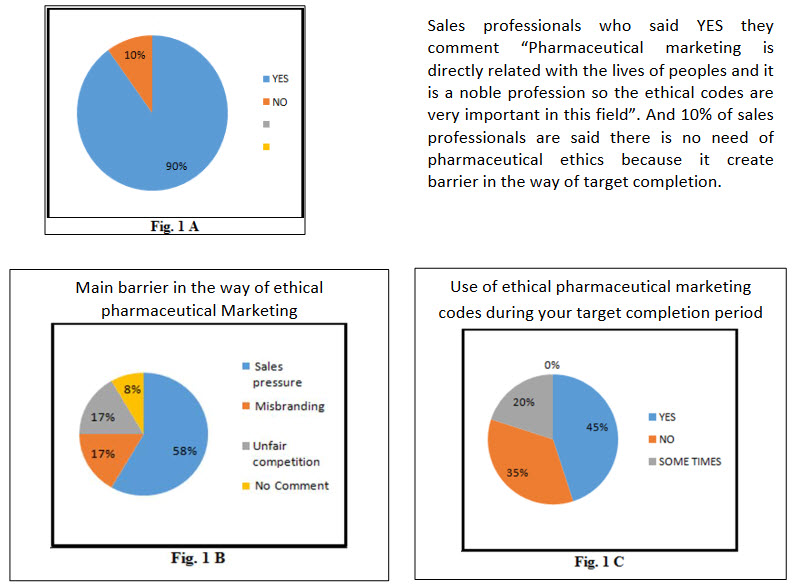
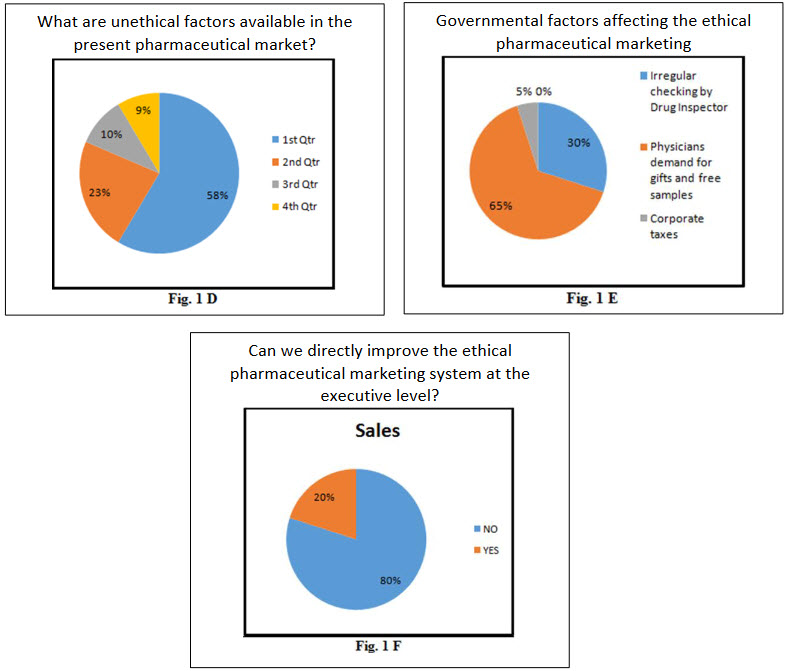
Conclusion
As before discussed CSR is a major concept for the development of both society and industrial organizations. But as the increments in the market competion mostly organizations in the field of pharmaceutical industry are using some strategies which are not suitable for the society and not coming under the pharmaceutical ethical codes given by governmental pharmaceutical controlling agencies. This scenario of pharmaceutical market is directly affecting the lives of peoples. Because due to competion companies are providing gifts to the physicians and physicians are prescribing the medicines of that particular company. Now matter of discussion is that may be that medicine is not good quality, not mare effective and more costly from other substitute medicines. So all pharmaceutical marketing related professionals are should use the ethical norms in their marketing practices for making the fair competition and stopping the unethical pharmaceutical marketing.
Limitations
The small and purposive, Allahabad-based sample does not allow one to generalize from the study findings. Since consumers were not interviewed, their independent decision-making on drug purchases could not be captured through this study. Also, as information from medical representatives was sought in focus group discussions rather than individual interviews, their comments may have been more guarded than otherwise. And physicians are were busy when we collect data so some they mark the tick on questionnaire without understanding well so it will be a threat.
Recommendations
- According to mostly pharmaceutical sales professionals if the concern drug-inspector do his/her job effectively then unethical factors will be remove from the market.
- Companies should not provide unnecessary gifts to the physicians.
- Provide better selling environment to the sales professional to reduce their burden of target completion.
- Conduct training programme for the sale professionals regarding to ethical codes.
References
- Dhaval M. Dave, Effects of Pharmaceutical Promotion: A Review and Assessment, NBER Working Paper No. 18830Issue(February 2013)
- Wright, Robert F.; William J. Lundstrom. "Physicians’ perception of pharmaceutical sales representative: A model for analysing the customer relationship". International Journal of Medical Marketing4 (1): 20–38, (2004).
- Grace, Damian; Stephen Cohen Business Ethics. Victoria: Oxford University Press, (2005).
- Pharmaceutical Association of Malaysia (PhAMA). PhAMA Code of Pharmaceutical Marketing Practices for Prescription (Ethical) Products, 18th Edition, (2010)
- Published: Guy David & Sara Markowitz & Seth Richards-Shubik, "The Effects of Pharmaceutical Marketing and Promotion on Adverse Drug Events and Regulation," American Economic Journal: Economic Policy, American Economic Association, vol. 2(4), pages 1-25, November, (2010).
- Joan Buckley, Electronic Journal of Business Ethics and Organization Studie, Vol. 9, No. 2, (2009).
- Mizik, N. & Jacobson, R. Are Physicians “Easy Marks”? Quantifying the Effects of Detailing and Sampling on New Prescriptions. Journal of Management Science, 50 (12), 1704-1715, (2004).
- Manchanda, M., &Honka, E. (2005). The Effects and Role of Direct-to-Physician Marketing in the Pharmaceutical Industry: An Integrative Review. Yale Journal of Health Policy, Law, & Ethics, 2, 785-822.
- Rod, M., & Saunders, S., The Informative and Persuasive Components of Pharmaceutical Promotion - An Argument for why the two can co-exist. International Journal of Advertising, 28(2), 313-349, (2009).
- Connelly, D. P., Rich, E. C., Curley, S. P. & Kelley, J. T., Knowledge Resource Preferences of Family Physicians.Journal of Family Practice, 30 (3) 353-359, (1990).
REFERENCE ID: PHARMATUTOR-ART-2146
|
PharmaTutor (ISSN: 2347 - 7881) Volume 2, Issue 4 Received On: 26/02/2014; Accepted On: 03/03/2014; Published On: 01/04/2014 How to cite this article: PS Lakhawat, P Vishwakarma, Pharmaceutical Marketing and Ethical codes: Myths or reality with special Reference to Allahabad, Uttar Pradesh, PharmaTutor, 2014, 2(4), 106-111 |
NOW YOU CAN ALSO PUBLISH YOUR ARTICLE ONLINE.
SUBMIT YOUR ARTICLE/PROJECT AT articles@pharmatutor.org
Subscribe to Pharmatutor Alerts by Email
FIND OUT MORE ARTICLES AT OUR DATABASE




